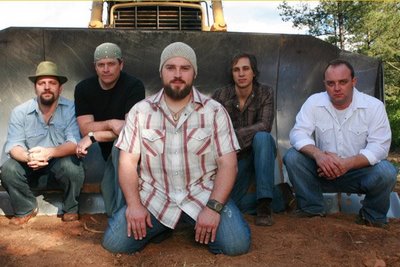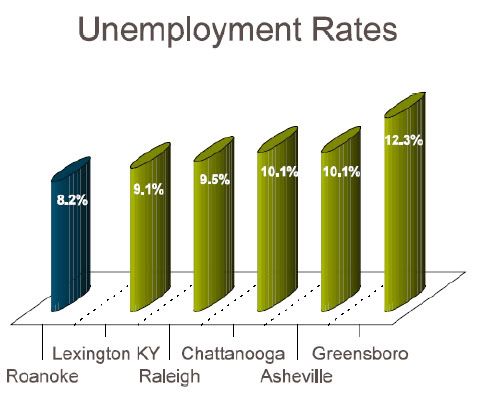What region has the most undergraduate college students per capita?
The Research Triangle? Boston-Cambridge? Austin? San Francisco Bay?
Try again.
Within an hour’s drive of the Roanoke, Virginia region are nearly 90,000 undergraduate students at 21 institutions of higher learning, from renowned liberal arts colleges to Virginia Tech, the state’s largest research university.
With a total population an hour in any direction from downtown Roanoke of more than 833,000, that means a per-capital undergraduate college student ratio of 0.108.
By comparison, the San Francisco Bay comes in at 0.060, with the Research Triangle at 0.057 and Boston-Cambridge and Austin tied at 0.049 (see box below).
The Roanoke region is surrounded by some of Virginia’s, and the nation’s, most recognized colleges and universities, including two law schools, a school of osteopathic medicine and a new medical school. While many people from the region choose the local colleges and universities for higher education, these institutions also attract diverse student populations from around the United States and the world.
When they’re here, college students enjoy some of the benefits that attract businesses and visitors to the Roanoke region – including easy access to the outdoors, a vibrant arts scene and sporting events.
| Region | 2009 Population Estimate | Number of Undergrads | Number Per Capita |
| Greater Roanoke Region | 833,387 | 89,873 | 0.108 |
| San Francisco-Oakland | 4,302,282 | 259,045 | 0.060 |
| Raleigh-Durham-Chapel Hill | 1,589,073 | 90,278 | 0.057 |
| Greensboro-High Point-Winston-Salem | 1,185,589 | 66,240 | 0.056 |
| Austin | 1,659,847 | 82,345 | 0.049 |
| Boston-Cambridge | 4,495,827 | 223,986 | 0.049 |
| Richmond | 1,230,605 | 57,425 | 0.047 |
In addition to Virginia Tech, the greater region’s colleges include:
Central Virginia Community College
Dabney S. Lancaster Community College
Edward Via Virginia College of Osteopathic Medicine
Ferrum College
Hollins University
Jefferson College of Health Sciences
Liberty University
Lynchburg College
National College
New River Community College
Patrick Henry Community College
Radford University
Randolph College
Roanoke College
Skyline College
Southern Virginia University
Virginia Military Institute
Virginia Tech Carilion School of Medicine
Virginia Western Community College
Washington & Lee University
 ones on their property as an alternative to long-term care facilities.
ones on their property as an alternative to long-term care facilities.

 concert halls seating a few dozen, even
concert halls seating a few dozen, even 








 pocketbooks during the recession, mirroring positive economic trends for the region. Consider:
pocketbooks during the recession, mirroring positive economic trends for the region. Consider:

 with today’s technology.
with today’s technology.


 events than facilities that are comparable to our size in the southeast,” says Carey Harveycutter, Salem’s Director of Civic Facilities. “We actually had several events exceed expectations, so I’m pleased we were able to overcome both the economy and the weather.”
events than facilities that are comparable to our size in the southeast,” says Carey Harveycutter, Salem’s Director of Civic Facilities. “We actually had several events exceed expectations, so I’m pleased we were able to overcome both the economy and the weather.” identified a wide range of non-profit and for-profit organizations with at least 15 employees working in the
identified a wide range of non-profit and for-profit organizations with at least 15 employees working in the 





 progression of lens powers without a visible line. Lenses that combine reading and distance prescriptions often require users to point or tilt their head for optimal vision, optometrists say. Many people are happy with bifocals and progressives, but others never adjust to having to look through a narrow area of the lens for optimal vision.
progression of lens powers without a visible line. Lenses that combine reading and distance prescriptions often require users to point or tilt their head for optimal vision, optometrists say. Many people are happy with bifocals and progressives, but others never adjust to having to look through a narrow area of the lens for optimal vision. house a primary care/specialty physician practice. The imaging center will be the first free-standing imaging center in Botetourt County and will offer state-of-the-art imaging procedures, including CT, ultrasound and general radiology (x-rays).
house a primary care/specialty physician practice. The imaging center will be the first free-standing imaging center in Botetourt County and will offer state-of-the-art imaging procedures, including CT, ultrasound and general radiology (x-rays). Roanoke County, the submitted project touched on all four categories of the CEDA award, incorporating Business Retention/Expansion, Community Development, Business Attraction, and Community Involvement. Roanoke County's featured project was the Green Ridge Recreation Center, a publicly-owned and developed multi-generational facility designed to anchor a proposed new business park and serve the growing needs of the community and region. Not just another recreation center, this facility will serve as a catalyst for new economic development opportunities throughout the entire Roanoke Valley.
Roanoke County, the submitted project touched on all four categories of the CEDA award, incorporating Business Retention/Expansion, Community Development, Business Attraction, and Community Involvement. Roanoke County's featured project was the Green Ridge Recreation Center, a publicly-owned and developed multi-generational facility designed to anchor a proposed new business park and serve the growing needs of the community and region. Not just another recreation center, this facility will serve as a catalyst for new economic development opportunities throughout the entire Roanoke Valley.



